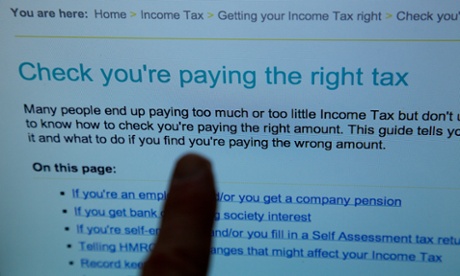
Banks and accountants that aid tax evasion will face criminal penalties under plans unveiled by the government.
A new offence of corporate failure to prevent evasion is being created to address those who assist dodging. Such offenders could also be “named and shamed” alongside the evaders themselves.
Although crackdowns on tax evasion are a hardy perennial of politicians, Danny Alexander, the Lib Dem chief secretary to the Treasury, insisted his proposals represented a meaningful new measure.
He told MPs: “We inherited from the previous government a tax system that had more holes than a Swiss cheese and was more complex than a Rubik’s cube. The opportunities for those who wish to get away without paying were many and varied.”
A Treasury document signed by Alexander and the chancellor, George Osborne, sets out plans for raising an extra £5bn a year from tax dodgers. A consultation will be held on a new “strict liability” criminal offence for offshore tax evaders.
“It will no longer be possible to evade large sums of tax and plead ignorance in an attempt to avoid criminal prosecution,” the paper says.
Alexander said: “Strict liability will bring an end to the defence of ‘I knew nothing, it was my accountant, m’lord’. The Treasury consultation document also promises we will also be increasing financial penalties, including a new penalty linked to the underlying asset for those who enable evasion; we will create a new offence of corporate failure to prevent tax evasion or the facilitation of tax evasion.
“This will complement the existing criminal offences for individuals. We will also introduce new civil penalties, exposing those who enable evasion to the same level of financial penalty as the tax evaded by the evaders themselves.”
Alexander said: “We will increase financial penalties for offshore evaders, including, for the first time, linking the penalty to underlying assets. A billionaire evading £5m of tax will not just be liable for that £5m.”
The document says both evaders and enablers of evasion will face penalties. “If someone helps someone else evade £1m of tax, they risk a penalty of £1m, or even more, themselves,” Alexander said.
The document also “proposes to extend the scope for HMRC to publish their names, exposing them to public scrutiny”.
Chris Leslie, the shadow chief secretary to the Treasury, broadly welcomed the proposals but expressed scepticism that extra money would be raised without extra staff at HMRC. Officials at HMRC have been roundly criticised for failing to prosecute anyone in light of the tax allegations involving HSBC’s Swiss bank.
The document claims the coalition raked in an extra £100bn revenue over the past five years from tackling tax evasion, avoidance and non-compliance.
The sum included £31bn from big businesses and £1.2bn extra from the UK’s 6,000 richest people, who each have a net worth of at least £20m.
The Chartered Institute of Taxation said that while tax evasion was a serious crime, the government’s proposal that “intent to evade tax” would not be necessary for a conviction could catch innocent people.
“UK and international taxation is a minefield of complexity and, while some taxpayers do actively seek to hide their income by intentionally failing to declare it, there are others who simply make mistakes in their financial affairs without intending to act wrongly,” said the institute’s tax policy director, Patrick Stevens. “A taxpayer may fall within the ambit of the offence without any intention or knowledge on their part.”

